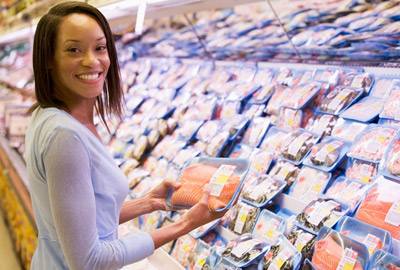
When it comes to eating fish, some choices are more ethical than others. To choose fish that is sustainably caught – that is, processed in ways that do not harm the environment – can be challenging but not impossible.
Also, if you want to extend the definition of “ethical” to refer to the humane treatment of the fish and other marine life, then that
adds another dimension to your fish-eating decisions.
Here are some tips on how to be an ethical consumer of fish.
Are there any types of fish that are always considered ethical to consume? Yes, there are some kinds of fish that are considered by experts to be “always safe.” These fish include:
* Pacific Halibut
* Mackerel
* Mullet
* Pollock
* Herring
* Trout
* Sardines
* Sablefish
Then there are those fish that are considered ethical no-nos. Fish that are on the “never eat” list for ethical consumers include:
* Flounder
* Atlantic Halibut
* Monkfish
* Bluefin Tuna
* Tilefish
* Shark
* Orange Roughy
* Grouper
* Chilean Sea Bass
Some fish are considered “sometimes” ethical to consume. It depends on the time of year, method of raising or catching, and other factors. Fish on the “sometimes” list include the following:
* Pacific Cod is a good substitute for the less-ethical Atlantic Cod. Pacific Cod is usually caught using longlines that go along the bottom of the water. This means less “bycatch” than the traditional trawl method. (“Bycatch” is unwanted marine life, such as dolphins and sea turtles, that end up getting caught along with the intended fish.)
* Anchovies, those little fish that some favor on their pizzas, are actually endangered. They are healthy, being rich in Omega-3 fatty acids, but take care not to consume anchovies until more commercial fisheries are reopened.
* Salmon is a healthy fish as well, but salmon sold simply as “Atlantic salmon” is farmed. Salmon farms spread diseases such as sea lice to wild salmon populations, and experts assert that farmed salmon is unhealthy. Look for wild caught salmon from Alaska (coho, sockeye, or pink salmon).
* Tilapia is just about always farm raised, but tilapia raised in Asia are exposed to chemicals such as antibiotics and pesticides. Tilapia raised on farms in North America are not exposed to these substances due to stricter environmental standards.
What About Shellfish?
Lobster, crab, shrimp and scallops also vary with regard to their ethical standing.
* Lobster from the Atlantic is usually sustainably caught. Those caught in Central America are over-harvested and divers are sometimes injured in the process.
* Crabs nearly everywhere have high populations, primarily because their natural predators have disappeared. The exception to this is King Crab, which is overfished.
* Shrimp that is imported and farm raised may be laden with chemicals. Shrimp farms in poor countries are terribly polluted. Bycatch is also a significant problem with trawl-fished shrimp. Look for shrimp that is wild-caught from Canada or the north-eastern United States.

